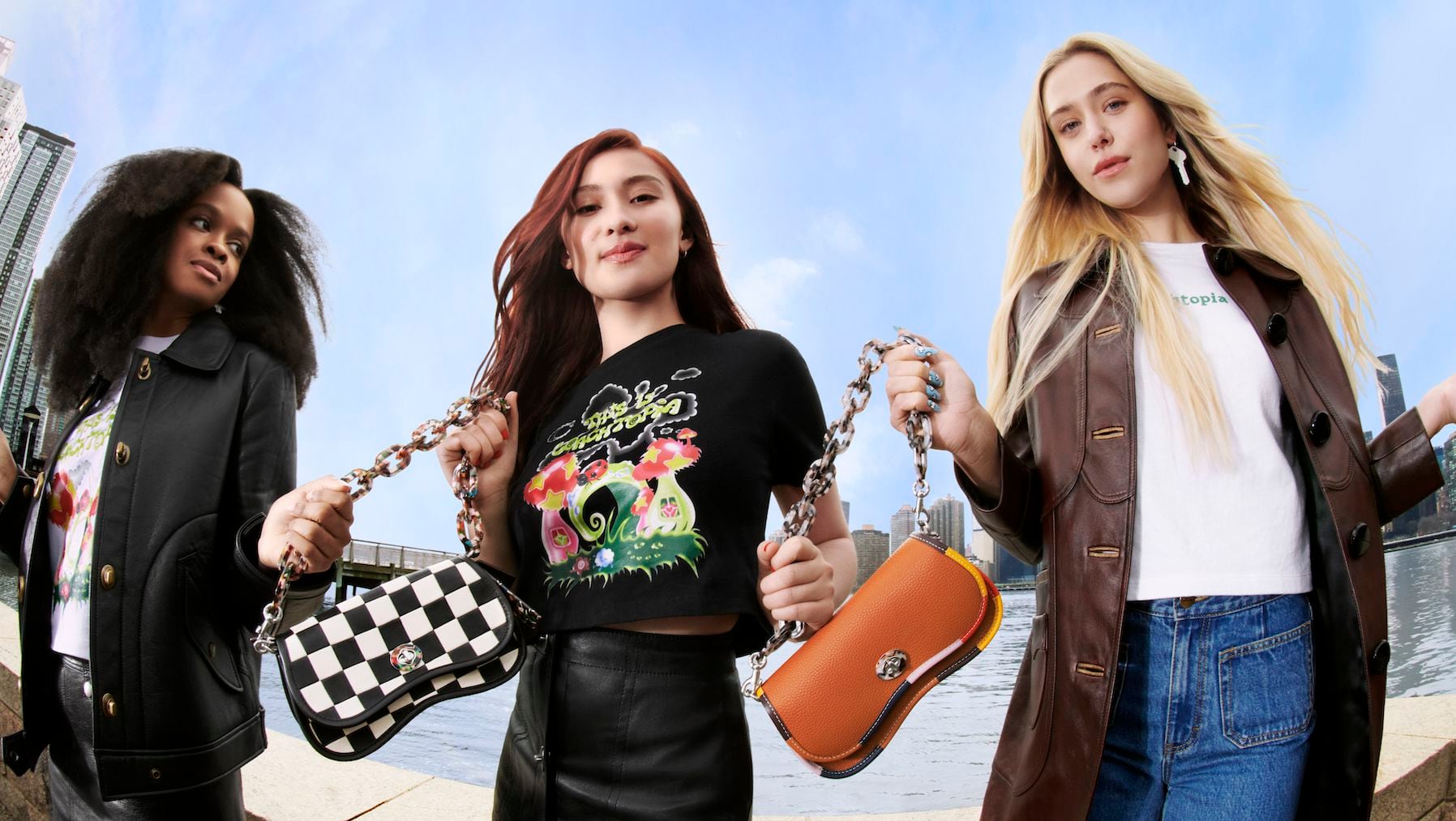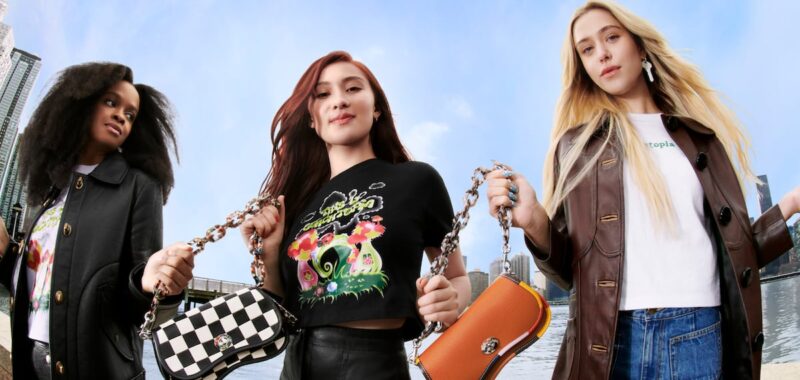
Traders are growing increasingly sceptical that antitrust regulators will approve Tapestry Inc.’s pending $8.5 billion takeover of rival Capri Holdings Ltd. — even if Tapestry’s leadership is confident the deal will go through.
The concerns stem from the tie-up of two major players in the high-end accessories market. Tapestry sells leather products and other luxury goods under the Coach, Kate Spade and Stuart Weitzman brands, while Capri controls high-end labels Michael Kors, Versace and Jimmy Choo. The combined companies would be the fourth-largest luxury company in the world and second largest in the Americas after LVMH, according to research firm GlobalData. That’s attracted regulatory scrutiny.
Capri’s stock price is down almost 11 percent over the past four trading sessions, falling to around $39 based on perceived negative comments last week from Federal Trade Commission officials about how they define market share. That puts the gap between where Capri is trading and Tapestry’s $57-per-share takeover bid at roughly $18, nearly the widest level since the merger was announced in August. A week ago, the difference was $13.
Still, Tapestry remains undaunted. CEO Joanne Crevoiserat reiterated that she expects the company to complete the deal in this calendar year.
“We know that given the landscape, it just takes time to work through the issues,” she said in an interview, adding that Tapestry doesn’t plan to divest brands to complete the acquisition. “We don’t think that it’s necessary.”
The merger arbitrage investor community turned increasingly bearish on the deal last week, as they interpreted some comments from FTC officials at a conference as negative for the deal, according to Anna Pavlik, global counsel at brokerage firm United First Partners. In particular, the commission’s competition head Henry Liu discussed changes in the updated merger guidelines and emphasized the agency’s focus on closeness of competition.
“We are not surprised about the market reaction, because the outlet market seems to be problematic given the evidence of the discount wars between the two companies, which may give the FTC a plausible case if the agency is inclined to bring a suit in a narrowly defined product market,” Pavlik said. “Though the FTC may be hesitant to allocate resources in a space that would not score political points.”
Given Capri’s current trading level, the market is pricing in a roughly 50 percent probability that the deal will be completed, according to calculations by United First Partners. Some market participants see the odds closer to 40 percent, according to an informal survey of several specialists by Bloomberg News.
The companies on Monday said they received regulatory clearance in Europe and Japan, leaving the US as the last outstanding approval needed for the tie-up. The approvals show that global regulators see Tapestry’s and Capri’s markets as suitably competitive, Crevoiserat said.
However, that update did little to halt Capri’s recent slump, with its stock down 0.2 percent at 13:37 in New York and Tapestry declining 0.4 percent.
By Yiqin Shen and Jeannette Neumann
Learn more:
Tapestry Merger With Versace Owner Capri Gets EU, Japan Approval
The merger, which would bring top luxury labels such as Tapestry’s Kate Spade, Stuart Weitzman and Capri’s Jimmy Choo and Versace under one roof, still awaits approval from the United States.

